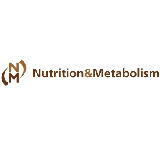
Preterm birth remains a major health issue worldwide. Since the 1990s, women at risk for preterm birth received a single course of exogenous antenatal corticosteroids (ACSs) to facilitate fetal lung maturity. More recently, repeated or multiple courses of ACS have been supported to provide continued fetal maturity support for women with continued risk of preterm birth. However, exogenous ACS reduces birth weight which, in turn, is associated with adverse adult outcomes such as coronary heart disease, stroke, hypertension, and type 2 diabetes. The long-term effects of ACS exposure on HPA axis activity and neurological function are well documented in animal studies, and it appears that ACS, regardless of dose exposure, is capable of affecting fetal HPA axis development causing permanent changes in the HPA axis that persists through life and is manifested by chronic illness and behavioral changes. The challenge in human studies is to demonstrate whether an intervention such as ACS administration in pregnancy contributes to developmental programming and how this is manifested in later life.